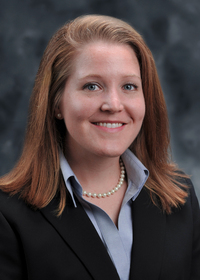Information Possibly Outdated
The information presented on this page was originally released on January 10, 2000. It may not be outdated, but please search our site for more current information. If you plan to quote or reference this information in a publication, please check with the Extension specialist or author before proceeding.
MSU Helps Address Food Safety Initiative
MISSISSIPPI STATE -- Revolutionary new food safety standards are presenting a challenge to meat companies committed to providing top quality products, so Mississippi State University is serving as a resource to help meet the new regulations.
The U.S. Department of Agriculture's Food Safety Inspection Service changed the standards for food safety in 1998 to the Hazard Analysis Critical Control Point system. For decades, the government conducted meat inspections based primarily on sight and smell conditions. Now, companies are required to meet new standards using more scientific methods.
To help develop and implement methods for meeting the new standards, PECO Farms poultry company turned to MSU's College of Veterinary Medicine for assistance.
Henry Welch, live operations manager with PECO in Bay Springs, said the company wanted to go the extra mile to perform even better than the standards.
"Our company is very committed to providing a safe food product for consumers. We wanted someone from outside the company to look at our production methods and give us advice," Welch said.
Dr. Hart Bailey, assistant professor of food safety at MSU, led the charge to develop strategies and methods that will help poultry companies meet the new standards. To address the challenges, he drew on many resources including scientists from MSU's College of Veterinary Medicine, the USDA Agricultural Research Service, other universities and industry personnel.
"USDA's Food Safety Inspection Service set up the new microbiological standards then left it up to each plant to develop methods to meet those goals," Bailey said."While there is no shortage of opinions about how to address bacteria at various stages of production, there is also no set method that will eliminate certain bacteria from broilers before they arrive at the plant."
Bacteria are a natural part of the environment and removal or reduction of any specific organism from the animal production system is extremely challenging.
Bailey said most industry food safety work had been done in the processing plants. The MSU research with PECO backed the efforts up into the field.
"We wanted to look at the birds during production before they reached the plants. We studied several methods of intervention to improve the quality of birds in the field," Bailey said. "Due to the changes in government regulations, we were facing never before asked questions. We were plowing new ground in the industry."
Bailey said industry cooperation in the research was essential.
"PECO's willingness to work with us certainly has enabled us to know more now than when we started," he said. "The knowledge and experience gained in this effort will greatly enhance our ability to respond to similar industry requests for assistance in the future."
Welch said PECO has implemented two new practices as a result of the MSU study.
"We've changed the feed withdrawal times and decreased the amount of time before processing. We've also changed the rinsing methods to help remove more bacteria," he said.
"The changes won't save the company any money, but they will help us produce a more wholesome product that will surpass the government standards," Welch said.
Bailey said as the U.S. food production industry strives to understand and implement the new science-based inspection system, more challenges will arise.
"The willingness of companies like PECO to work with scientists on food safety issues will help us continue to provide consumers with the most wholesome food supply in the world," Bailey said.
To show their continued commitment to food safety research, PECO gave $50,000 for food safety research at MSU's College of Veterinary Medicine. Bailey said the goal of the MSU researchers is to strengthen the food industry that is vitally important to Mississippi's economy.
Contact: Dr. Hart Bailey, (662) 325-3432



